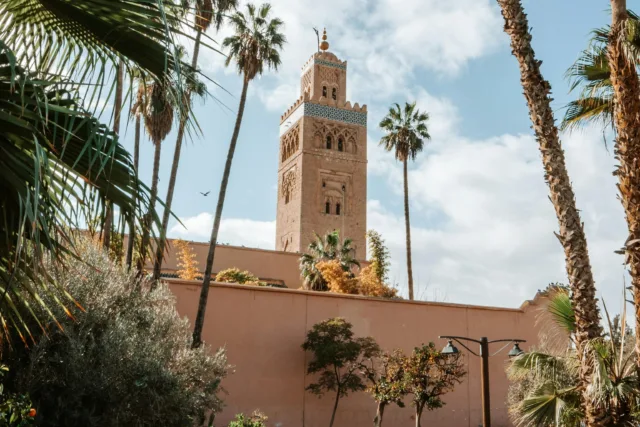
Short-Term Rental Regulations in Morocco: 2025 Legal Guide for Owners
The popularity of platforms like Airbnb and Booking.com has transformed Morocco’s hospitality market. Yet, understanding short-term rental regulations in Morocco is essential if you plan to operate a profitable and compliant vacation property. From Marrakech to Tangier, rules govern permits, taxation, and guest safety to ensure a fair, sustainable rental industry.
This guide explains the most important requirements for owners and investors looking to tap into Morocco’s thriving short-stay market. Whether you own a riad in the Medina, an apartment in Casablanca, or a beach villa in Essaouira, complying with short-term rental regulations in Morocco protects your business and improves guest trust.
Why Regulations Matter for Short-Term Rentals
Morocco’s tourism industry is one of the strongest in Africa, and short-term rentals have become an attractive way to capture visitor spending. However, without proper licensing, owners risk fines, loss of income, or even property closure. Short-term rental regulations in Morocco help maintain quality standards, protect local communities, and provide transparency for tax authorities. They also balance the needs of travellers, residents, and businesses, ensuring that rental growth does not undermine housing affordability or neighbourhood character.
In popular cities like Marrakech, Casablanca, and Tangier, regulations define how properties can be listed, the paperwork needed for permits, and safety standards such as fire exits, smoke alarms, and insurance coverage. These measures promote professionalism and allow legitimate hosts to compete fairly with hotels. Staying updated on short-term rental regulations in Morocco gives investors an advantage, allowing them to position their properties as safe, legal, and trustworthy choices for guests.
Licensing and Permits for Holiday Rentals
Operating a short-stay property legally starts with obtaining the correct permits. Depending on location and property type, Moroccan authorities may require:
- A classification certificate for tourist accommodation, issued by local tourism boards.
- Registration with municipal or provincial authorities to list the property as a furnished tourist rental.
- Compliance with building codes, including accessibility, hygiene, and fire safety.
Applying for these documents often involves site inspections and submission of ownership proof, floor plans, and safety compliance forms. Although paperwork can seem complex, it ensures that your property meets the standards set out in short-term rental regulations in Morocco. Once licensed, you can advertise your property confidently on international platforms while reassuring guests that your rental follows the law.
For investors managing multiple units, partnering with a local property manager experienced in holiday rental management can streamline compliance. They understand the nuances of permits and can ensure each listing adheres to the latest short-term rental regulations in Morocco.
Tax Obligations and Revenue Reporting
Complying with tax rules is another critical part of staying on the right side of short-term rental regulations in Morocco. Income from short-stay properties is taxable and must be reported annually. Hosts are expected to:
- Declare rental income through Morocco’s tax system.
- Pay applicable VAT if revenue exceeds specified thresholds.
- Collect tourist taxes from guests where applicable.
Tax rates vary depending on the property’s category and whether the owner is an individual or operates as a registered business. Consulting a tax advisor familiar with tax benefits for foreign investors can help you structure your rental activities efficiently. Transparent accounting not only meets short-term rental regulations in Morocco but also builds credibility with guests and authorities.
Digital payment platforms make it easier to track income and automate guest receipts, reducing errors during filing. Keeping meticulous records, such as contracts, invoices, and receipts, supports compliance and can protect owners if audits arise.
Safety and Guest Registration Requirements
Maintaining a safe environment is central to short-term rental regulations in Morocco. Authorities require property owners to ensure that their rentals meet minimum safety standards. This typically includes installing smoke detectors, fire extinguishers, and reliable locking systems. For villas or apartments with pools, clear signage and child safety barriers are recommended. A well-maintained property not only satisfies legal requirements but also enhances your guests’ sense of security, resulting in better reviews and repeat bookings.
Another important rule under short-term rental regulations in Morocco is guest registration. Hosts are expected to record guest details, such as names, passport numbers, and dates of stay, and submit them to local police or tourism offices. This step helps authorities maintain accurate visitor records and strengthens community security. Many professional hosts use digital registration tools or partner with experienced property managers to handle this process efficiently.
Failing to meet these safety and registration obligations can lead to penalties or suspension of permits. To stay ahead, consider adding a safety checklist for cleaning teams and updating your guest log procedures regularly. Compliance with short-term rental regulations in Morocco shows that you prioritise professionalism and guest welfare.
Penalties for Non-Compliance
Ignoring short-term rental regulations in Morocco can have serious financial and legal consequences. Authorities may impose fines, revoke permits, or even close unlicensed properties. Repeat violations or operating without proper authorisation can escalate into costly legal disputes, harming your reputation and revenue potential.
Penalties vary depending on the severity of the breach. For example, failing to register guests or declare income might result in moderate fines, while persistent safety violations or tax evasion could lead to higher sanctions. Maintaining clear records and following each step of short-term rental regulations in Morocco is therefore essential for avoiding unnecessary risks. Owners who adopt a compliance-first mindset usually enjoy steady rental income and fewer disruptions to their business.
Best Practices for Sustainable Compliance
Successful hosts treat short-term rental regulations in Morocco as part of their long-term business strategy. Here are some practical tips to stay compliant while optimising your rental performance:
- Hire professional managers: Collaborate with agencies specialising in holiday villa management. They understand permits, inspections, and guest protocols.
- Schedule annual reviews: Revisit your licensing documents, safety equipment, and tax filings each year to ensure they remain up-to-date with evolving laws.
- Educate staff: Train cleaning or concierge teams on security and record-keeping to help them support compliance goals.
- Monitor legal updates: Subscribe to local tourism or municipal newsletters that share new guidance on short-term rental regulations in Morocco.
Integrating these best practices into daily operations minimises the risk of penalties and elevates the overall quality of your service. Properties that comply with short-term rental regulations in Morocco also tend to stand out in competitive markets, attracting higher-quality guests and stronger reviews.
Frequently Asked Questions About Short-Term Rental Regulations in Morocco
1. Do I need a licence to operate a short-term rental in Morocco?
Yes. Most hosts must obtain a licence or classification certificate from local tourism or municipal authorities. This confirms that your property meets the requirements under short-term rental regulations in Morocco. Unlicensed rentals risk fines or suspension, so always secure permits before listing your property.
2. What taxes apply to short-term rentals in Morocco?
Income from short-term rentals is taxable and should be declared annually. Depending on your revenue, you may also collect tourist taxes or pay VAT. Consulting a tax expert familiar with Moroccan property taxes can help you structure your finances and comply with short-term rental regulations in Morocco.
3. Are there guest registration requirements for short-term rentals?
Yes. Hosts must register guest details, such as name, passport number, and length of stay, with the local police or tourism office. This procedure is part of short-term rental regulations in Morocco and enhances guest safety and neighbourhood security.
4. What happens if I don’t follow Morocco’s rental rules?
Non-compliance with short-term rental regulations in Morocco can lead to fines, cancellation of permits, or even property closure in severe cases. Keeping accurate records, maintaining safety standards, and paying taxes on time help you avoid costly penalties.
5. How can I keep up with changes in short-term rental laws?
Stay updated by subscribing to municipal newsletters, joining local hospitality associations, or hiring a property manager who specialises in vacation rental management. Regularly reviewing your permits and safety compliance will help you adapt quickly to new short-term rental regulations in Morocco.
Conclusion
Understanding and respecting short-term rental regulations in Morocco is vital for any investor or homeowner looking to capitalise on the country’s dynamic tourism sector. From obtaining permits and paying taxes to ensuring guest safety and proper registration, compliance is the foundation of a profitable rental strategy. By implementing proactive systems, staying informed about changes in the law, and seeking expert advice when needed, property owners can operate confidently while offering travellers exceptional stays across Morocco’s most desirable destinations.
For more insight into creating a compliant and profitable rental portfolio, explore our guides on managing holiday villas in Marrakech and assessing the property market outlook. With the right preparation, short-term rentals can become a sustainable, high-return investment in Morocco’s vibrant hospitality landscape, and consider contacting us directly in case you have other questions.



Leave a Reply